

Blog
Welcome to the Busybird blog, where you can find helpful articles, updates, industry news and more. Make sure you stay up to date by signing up to our newsletter below.
My 20-Year Writing Journey
September 17, 2024As cliché as it sounds coming from a publishing intern, I have always loved reading and writing. My dad loves to say that I began to speak ‘too early’, but I just see this as a part of my clearly innate need to get my stories out there. I spent the bulk of kindergarten taking coloured paper from the art table, stapling it together with lined paper, and creating my very own books. I loved reading these out to my family, workshopping my plots and characters in real time.
Later on, I was graced with the wonders of the digital world. I could use our family computer to type out words faster than I could think of them, and then polish it up with a Word template suited to whatever I wanted. I think I just about ran our house clean out of printer ink!
I created my own magazines, book series, comic strips, and diaries. My primary school friends were subjected to consistent emails about my current stories – but luckily for me, they would just ask for constant updates back.
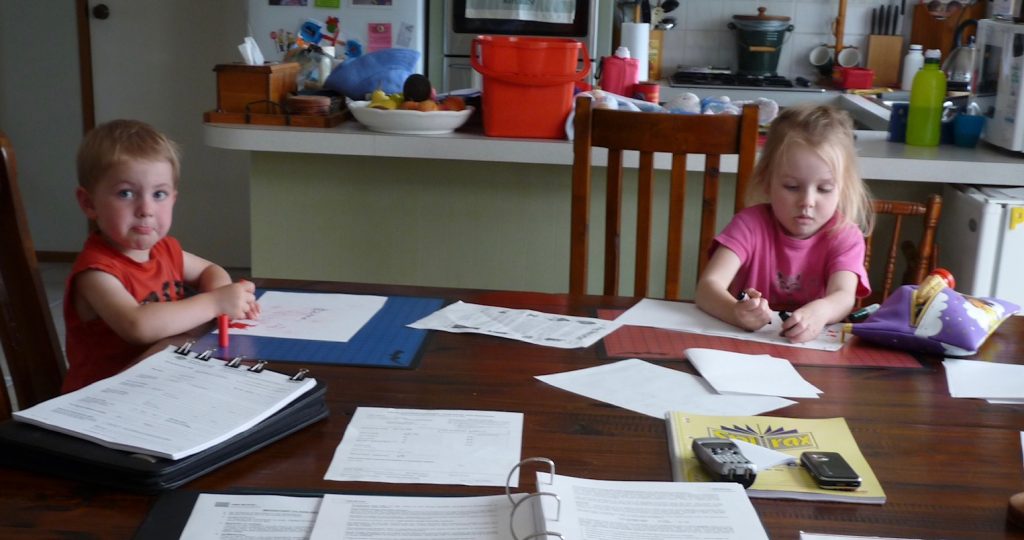
Looking back now, I can see that my writing during this time was very heavily inspired by my life. Although I thought that I’d mastered the art of fiction, I now know that I was incredibly far from it. I used to base every character off a friend – with their real name and everything! – and have the plot revolve around whatever I was dealing with at the time. This was anything from school and friendships to the incessant need for a treehouse in our backyard. The latter ended up becoming a five-part series, featuring a man with my dad’s name growing a giant head of broccoli for his daughter to live inside – not much room for interpretation there!
Although I can’t ignore the fact that my writing still revolves around my life and experiences, my adolescence and university course have taught me that this doesn’t strictly have to be expressed as children’s fiction. I’ve moved on from slightly tweaking my diary entries and slapping them into a Word doc as a chapter book, and have even grown to understand the importance of subtlety.
However, this shift in my writing has also led me to find that creative writing isn’t the only end goal. I would often spend twice as long poring over my written words to tweak it to perfection before I realised that this part of the process was actually just as important – and not some sort of perfectionism-induced procrastination! Half of a story’s impact is lost if it doesn’t read right, and I could easily spend days going over my own work to find that flow.
Entering my twenties and working through my communications degree is what brought me to Busybird. I felt incredibly stressed during the application and interview process, but quickly found that it was pointless after I was asked who was singing the song playing over the speakers. As an 80s music fanatic myself, I was more than happy to gush about my love for George Michael, especially after finding out that these quizzes would be a frequent part of the internship.
However, I have since found out that my 80s movie knowledge isn’t quite as up to scratch – cue my forced viewing of Electric Dreams!
I’ve loved getting to see where my degree (and passions) could actually take me, not just as an outline on a unit syllabus. I’ve found it so interesting to see what real people write about, and I’ve felt reassured to have had so many memoirs come across my desk.
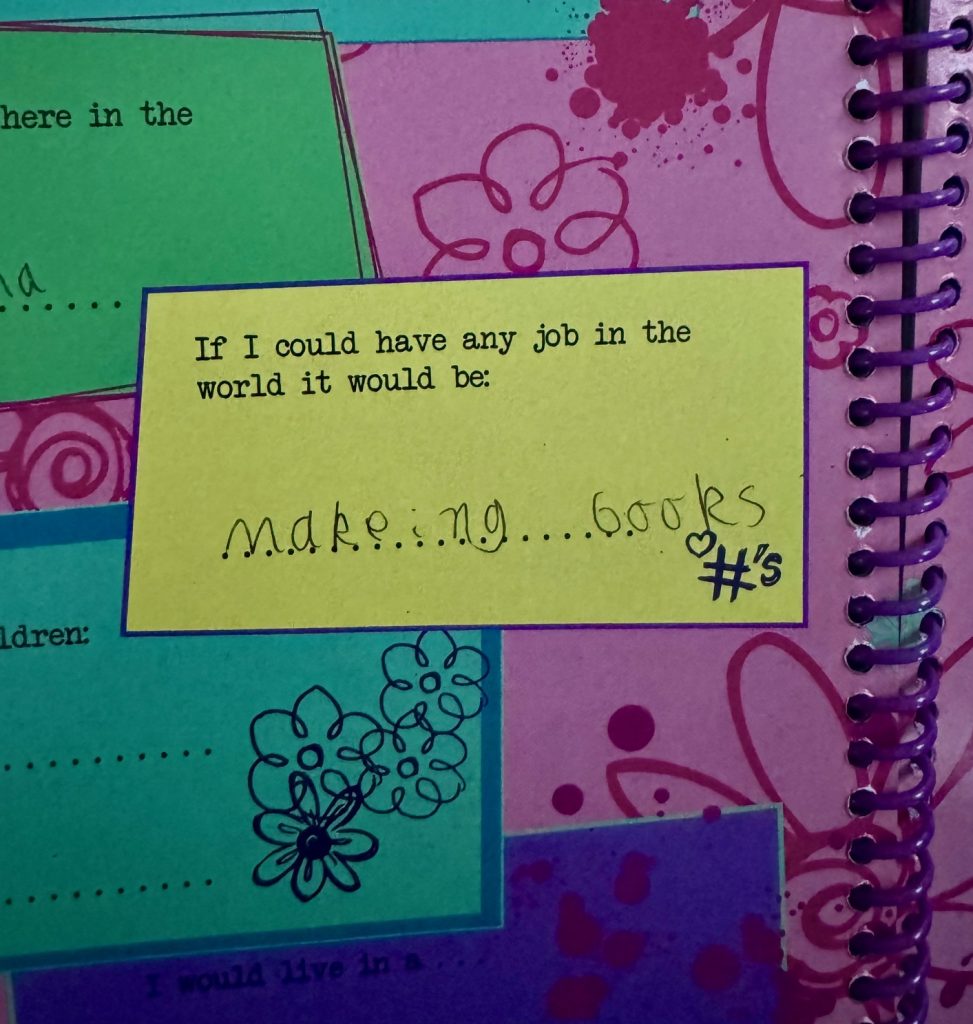
Above all, I love the community here. Les and Kev are great with balancing teaching with non-work-related conversations, so I feel less like a uni student and more like a real part of the team. I get to meet so many new faces every week, especially at the open mic nights. I’ve heard lots of life stories presented in so many different ways, and I can already see that this alone has impacted my content and approach to writing. I (finally!) feel myself coming out of my school-induced writer’s block, where not everything needs to hit certain criteria for a grade. The beauty of writing is the fact that it is an art form, not just a vessel for communication.
Though I am still in my very early adulthood, I feel that Busybird has been the best welcome into the industry. Not only do I have a new set of dot points to add to my résumé, but I also have a stash of memories and pointers to put keep under my belt. I know that my kindergarten self (though stuck trying to write a coherent sentence on paper) would be very happy.
Abby Harvey
Editing intern
Interview Anxiety
September 5, 2024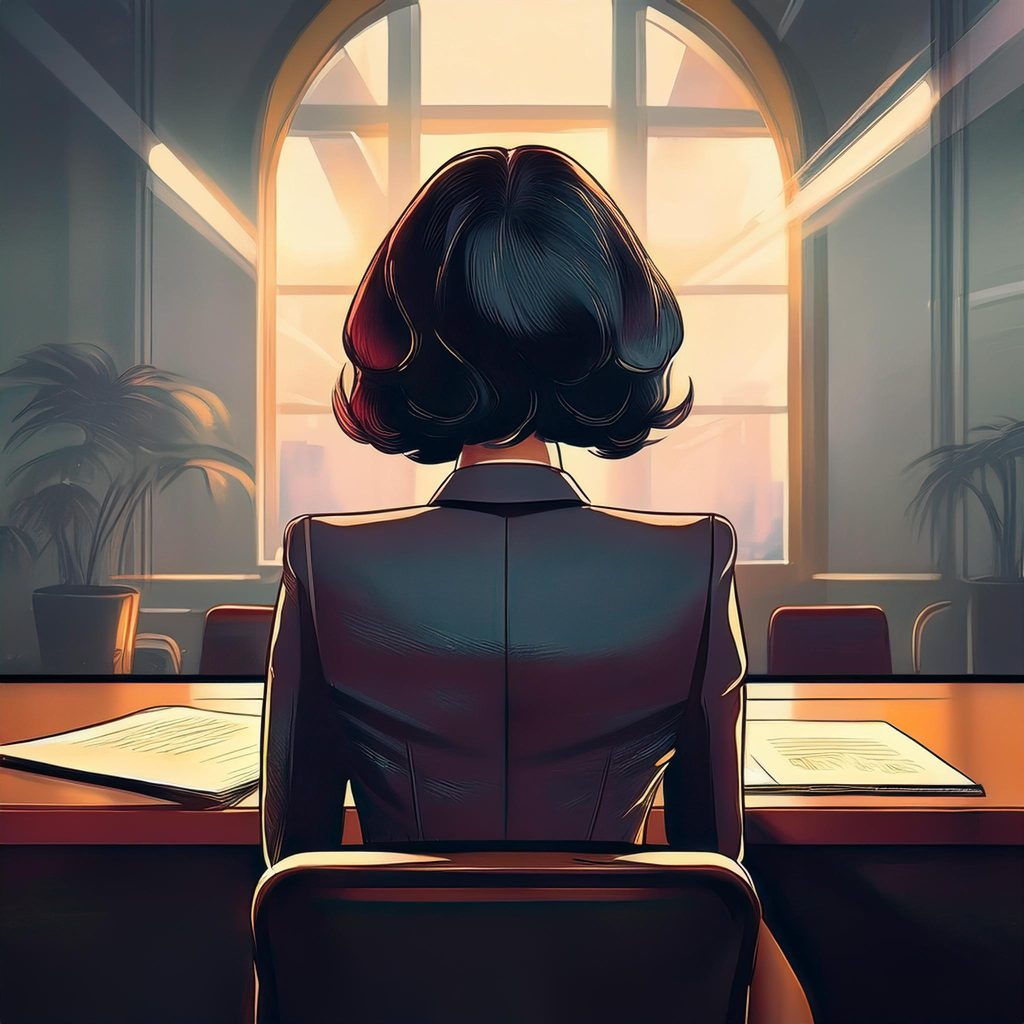
I wore earrings for the first time in months. I put on my Shakespeare pin, in case I needed to prove my dedication to writing. I scheduled therapy directly before. I edited my resume into a farrago of unpleasant coffee jobs and small debating awards, determined to use passion and youth to my advantage. I parked in a side street, lest I steal a more deserving car’s space.
A tempest of nerves rattled my skull. I always trembled, at least a little. In orchestra we called it ‘shaky bow’: the moment your thumb slipped, your lip quivered, and the conductor’s reprimanding eye found yours.
I’d sold my violin years ago, but the day I walked into Busybird I had the worst shaky bow of my life. I marched into the office on semi-steady feet, overstimulated, ready to face the worst.
I was immediately attacked by a golden labrador.
Oscar’s willingness to give love to a stranger threw me. The vibrant orange and pale blue, the faded prayer flags and unmistakable whiff of coffee, it all set me at ease. I’d forgotten, somehow, that writers understood anxiety more than anyone else. As Oscar nuzzled my hand, I realised this was not a test. It was ‘hello’.
I used what little knowledge I had, admitted when I was lost (what the hell was Ingramspark?), and left the same way I came. I’m still haunted by the typo I missed in the copyediting exercise, but I was never berated for the misstep. I saw, for the first time, a life in publishing which was not predicated on torturous exertion.
When my mum asked me how ‘Busybee’ went, I grinned with all my teeth and told her it was fine.
I am grateful for open mic nights, opportunities to typeset, know-how which would’ve otherwise eluded me. Les remains appalled at my incomplete knowledge of music history, Kev continues to teach me the value of design, and the other interns have made me feel less alone in the industry.
At her Melbourne signing for Yellowface, Rebecca Kuang said, ‘We all have to link elbows and make room for each other.’ The publishing industry specifically pushes us to compete, none of us are immune to ambition, but the idealist in me has convinced the cynic we can make space for revelry in writing.
Of course, I still get shaky bow. It means I care deeply about my craft.
It is not a weakness to pat the fiendish dog.
Scout Manuel
Wednesday Intern
Words and the Weather
July 23, 2024When the sun becomes shrouded in a haze of grey clouds and the winter winds blow through the trees, I fear the worst…
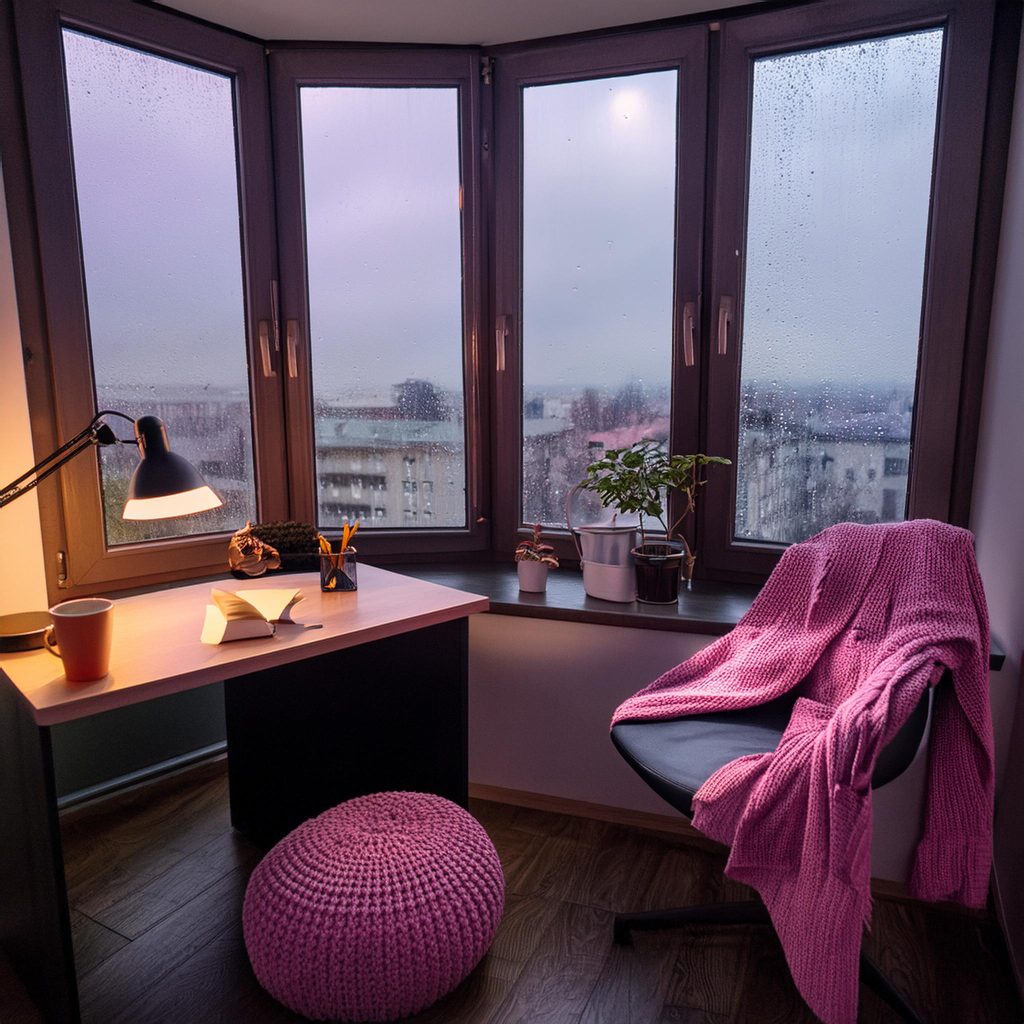
Infected with “seasonal blues”, I can always feel my fingers longing to reach for the phone, leading me to the pulling of a “sickie” and spending the day in the depths of a bed rot, with a book in my hand, sipping on a hot coffee.
In the same way that you would pair a juicy steak with a heavy shiraz, I long to pair a cup of tea with a good book the second I see as much as a cloud. But capitalism is a cruel mistress, and she bests me every time, the slog of a commute in the rain, the wind blowing the eyebrows clean off my face and the pure dread of human interaction hangs over me on a cold day just like … well, you know.
As a poet I find it easiest to allow my mood to guide me when I begin working on something. I’ll pull apart my memories like fairy floss and if it’s storming outside you can almost guarantee I’ll be pulling from the sad drawer.
I used to find it easiest to read and write under the cover of night, where my mind is levelled out enough so that there was no inherent bias within me as to what I might choose to write about.
My hands would move, and the words would just come.
Nowadays I allow the weather to choose for me, although that’s not to say it’s impossible to be sad and lonely on a sunny day; it’s difficult and requires dedication but trust me, it can be done, and I will say crying in the sunshine does indeed feel like a bit of a cardinal sin.
On a cold day when my toes freeze, my grip on everything becomes a little tighter. Like shaping something out of clay, I let my fingers on the keyboard match the pitter patter of the rain as the sky and I find synergy, and days later I’ll open the document and think, Jesus Christ, is she okay?
Sometimes it’s simply a fact that writing is a lonely exercise, alone with your thoughts for hours at a time, collaborating with every version of yourself to piece something together. As you make more space in your head for a story that can grow bigger and bigger, it’s as though there is too much space to occupy. When a blue sky is normally so lidless, the comfort of clouds offers a snugness as they tuck themselves around our homes.
Though I may complain about the seasonal blues that seep into the walls and latched on from the moment I heard my alarm blaring in the early hours of the morning, along with the sound of trees snapping in a blistering wind, sitting in the Busybird office and watching through the window the weather weave (in a classic Melbourne fashion) between rain and shine, I’ve had two minds about which thoughts need to be bottled and stored on the page today.
But why shouldn’t they all blend?
All of this is not to say that as a writer my ability to do so solely depends on the weather. It’s just easier sometimes to craft pieces you may normally cringe at when the wind is howling against your building, screaming at me to be braver. The darkness of the clouds whispers that they understand, the rain patting you on the shoulder as if to say, “You’re not alone.”
Cleo Docker
Tuesday Intern
On Work, Kids, and Making Time
July 9, 2024It’s a cliché – juggling work and small kids is hard. No one denies it, and if they try, they might cop a stray fork to the eyeball.
You stay up half the night rocking, soothing, and occasionally using a snot-sucker to remove goop from tiny nostrils. Morning dawns and the older ones demand fruit – specific fruit, seasons be damned – and the smaller ones cling to you like they’re trying to squeeze your soul out through your gullet, all at a volume usually reserved for Grandpa’s TV audio settings.
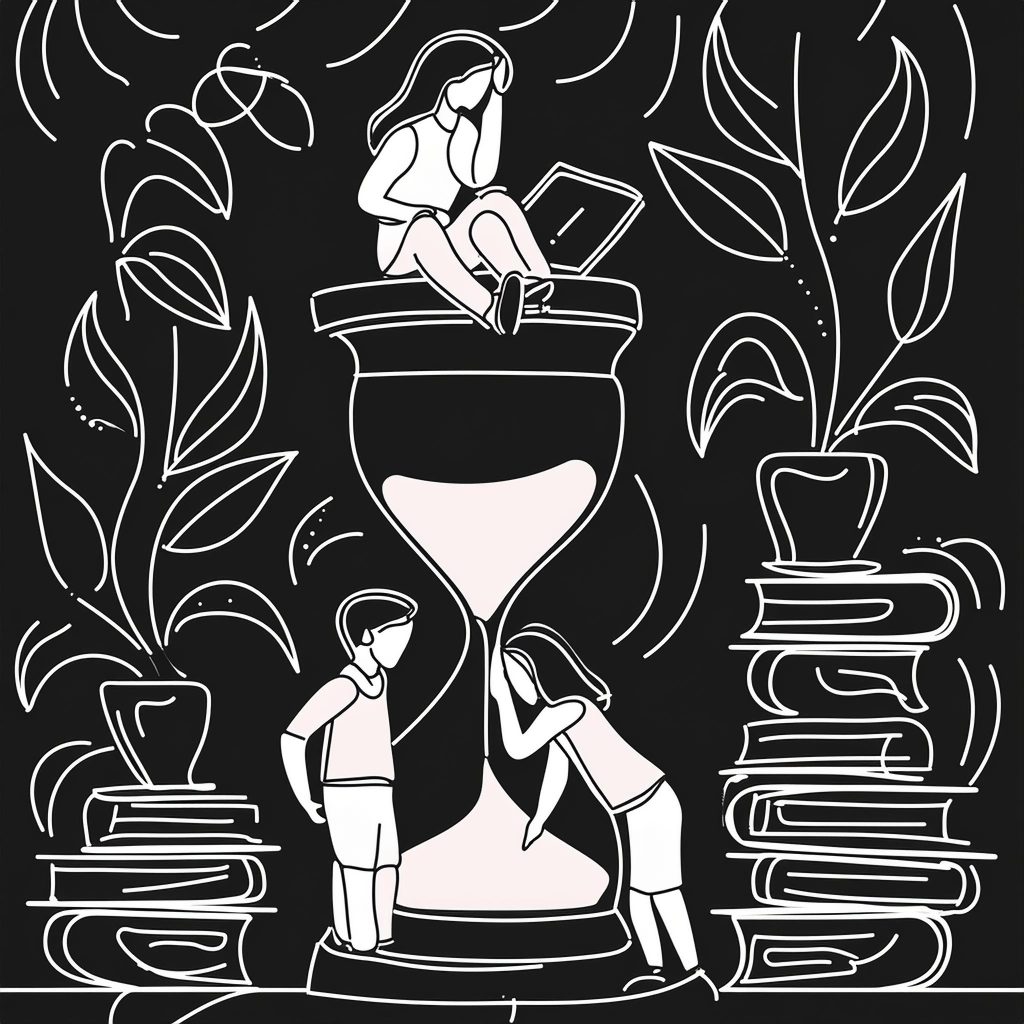
Once fed and dressed (the hardest part – a judo black belt would help) you wrangle them into the car and drop them, often wailing for your extended presence, at daycare or kinder. And after the emotional turmoil that was your morning, you’re expected to toddle off to work and file away your children until pickup, so you can concentrate on whatever task you’ve been assigned that day, regardless of your sleep bank or energy levels.
And most people do it full time, with a couple of weeks of annual holidays to temper the strain.
But kids aren’t all snot and squeals. My eldest understands the word googol, just so they can describe how much they love me. My youngest speaks at a pitch so perfect, it gives me unprecedented ASMR. Their skin is the silkiest. Their curls, the dearest. They tell bad jokes that lead nowhere and stroke my face with infinite tenderness. They make me slow down and appreciate the small moments.
The other night during a kid-led kitchen boogie, I turned to my partner and said (in one of my cornier moments), ‘This is the time of our lives.’
‘I know,’ my partner replied.
So, when financial pressure meant it was high time to get back to work after several years of exclusive sticky hands and cries of, ‘Carry me!’, I knew I wanted to find work that wouldn’t take me completely away from the joys and struggles of parenthood. I wanted to find work that would allow me to treasure these few short years of smallness, sweetness and chaos, before the sarcasm and eye rolls officially set in.
I deeply admire the parents who can do it all – work full time and parent with indefatigable energy. But I also admire the parents who find ways to circumvent the constraints of colonial/patriarchal capitalism and make time for slowness. Besides, my constitution demands it – years of low iron and breastfeeding only permit so much. So, in these early years my partner and I have chosen op shop clothes and home-brand over holidays and fancy (or even clean) cars. We don’t buy organic vegetables, go to gigs, or update our technology. Our phone screens have ancient, zig-zagging cracks. We’ve chosen time over luxury at every opportunity.
With that in mind, I set out to find work that suited my pace and scoured the internet for freelance editing opportunities that would allow flexibility and balance.
But in these post-Covid times it’s all about who you know. Maybe it always was. I’m not so hot at the literary schmoozing and event attendance – a must for aspiring freelance editors. I don’t relish long solo missions to launches, fairs or festivals.
I had to look closer to home.
We had recently done the tree-change thing and moved out to Eltham – found a mud-brick home that’s impossible to heat, on a block of oxalis-infested bushland. We have a resident wombat who digs up the path, a family of wallabies who bound across the back of the block, and a feeling that this is where we’re meant to be.
I loved the idea of working near home, so I googled small local publishers who might need freelance editors, hoping that even if they didn’t have work for me, they might take pity on a local and find a moment to offer advice.
The first person I contacted was a bust – she rather aggressively told me that of course she had no editing work and she could meet up to chat about the industry for fifty bucks, if I wanted. I did not, but kudos to her for valuing her time.
The second business I found was an entirely different vibe. The website was a quick giveaway – this is a place that understands community and family. I’ll forever wish I’d met Blaise – her legacy here is pervasive: warm, caring and somehow maternal. And Busybird had everything I’d been looking for. They actually give their interns training and, after the internship is complete, freelance editing work. I had a few gaps in my resume, so I swallowed my pride and misgivings about another internship as a thirty-something mum of two with ample editing experience under her belt, and applied.
It was the best decision I could have made.
In a recent Busybird newsletter, I listed some of the things that make it special, but at its heart is community – people of all ages coming together to share their stories. Kev and Les are the backbone, but people are drawn to share the space, happy to spend an hour chatting over the inexhaustible supply of sweet treats that grace the central collaborative table, keen to have a cuppa and chat books, conspiracy theories, or the latest Netflix binge. And I can’t write about Busybird without mentioning the ultimate sweetheart goofball who graces the space – dear doggo Oscar.
Now, at the end of this experience, I know more. Thanks to Les I’m a better writer and editor, I can make a TikTok reel (albeit badly – I’m a millennial, after all), I understand the industry on a deeper level, and I’ve embraced the Oxford comma. Above all, I have new friends I hope to keep for life.
I’ve found that I love editing self-published work. Everyone deserves to have their story published, gatekeepers be damned. And everyone has a story to tell. Our lives are rich with the strange and wonderful.
I now have freelance work that gives me time. Time for the small, slow moments of parenthood. Time for the larger life events that can so easily pass us by amidst the unending pressures of capitalism. Time to garden, read, and write. Time to wonder. Time to grow.
And when my kids smear snot on my leggings for the umpteenth time in one hour, I’ll chose to thank Busybird (almost definitely) for giving me a chance.
Ellen Spooner
Editing Intern
My Work Experience
July 4, 2024Books have been a large part of my life ever since I was a child. My mother used to read stories to me before I was old enough to comprehend the words, or even say them. My grandma would also read to me, and I would sit starry eyed as I watched her mouth articulate each word, painting a picture with mere sounds. She always found it interesting how I would watch her so intensely, intrigued by the story.

As I grew, I began reading my own books, exploring Willy Wonka’s Chocolate Factory and the halls of Hogwarts. Slowly, the spines became wider, the pages more densely packed with words. My mother still read books to me, classics like The Faraway Tree or The Wizard of Oz.
Reading is a wonderful experience. It transports you, educates you, entertains you, and inspires you. I love reading many genres, authors, and forms, as each is individual in its own way. Yet, there are so many books in this world, and not enough time to read them. I feel that I will never read everything I want to.
When questions about my future arose, asking where I would like to be in 5, 10, or even 15 years, I turned to this constant of reading. ‘Editor’ became a word frequently tossed around. I could help others create their dreams while also doing something I loved. And, when asked about choices for work experience placements, I knew editing was something I wanted to pursue. This led me to Busybird, and I am so happy that it did.
You know, as soon as you open the door, that this is a wonderful place. Oscar the blond labrador comes bounding up to you, slobber drooling from his mouth, and you cannot help but pat him. As you walk in, the walls are lined with books, and you can tell that these people take pride in what they do. And the first sound that enters your ears are of course the infamous 80s songs you may have read about in earlier blog posts.
This experience has been above my expectations. I cannot thank Les, Kev, all the interns, and even Oscar, for all they have taught me. The wisdom they have imparted is invaluable and I know the skills I have learnt will be influential in all my endeavours.
Not only has my knowledge of editing and proofing expanded, but that of working in an office environment and the many things needed to keep it operational and organised.
As I sit here writing this, I am beside a wall adorned with appreciation for all they have done. Many more books are published, and authors lives made complete because of the work that they do. I am so grateful for this experience, and the chance to have met such wonderful people.
Thank you, Les, and Kev, you are extraordinary and unique in a way few people are.
Ella
Work Experience Student
